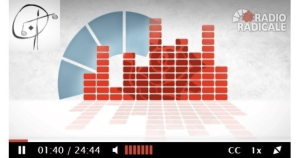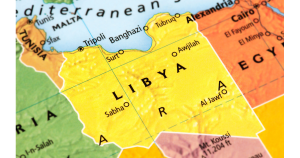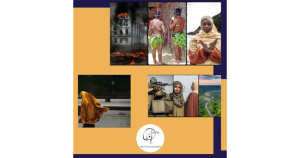On the International Day for the Elimination of Violence against Women and the Day against Domestic Violence, No Peace Without Justice reaffirms its support for all women and girls who are victims of violence. We recommit ourselves to raising awareness and working towards ending this alarming global issue.
According to a 2013 World Health Organisation report, it is estimated that one third (35%) of women and girls worldwide experience violence at some point in their lives. The number is likely much higher: many cases of violence go unreported, due to stigma, shame and societal complicity. What’s more, 603 million women live in countries where domestic violence is not criminalised.
Violence against women constitutes one of the most widespread, consistent and devastating human rights violations. It is a pervasive form of discrimination that is used to undermine women’s dignity, autonomy and independence. This kind of violence exists in every country, culture, and community, creating victims of sexual abuse, exploitation, rape and other harmful practices such as human trafficking, female genital mutilation and forced marriage. This constitutes an obstacle to achieving equality, development and peace, as well as the fulfilment of women’s and girls’ human rights.
While every woman can be subjected to all forms of violence, NPWJ acknowledges and stresses the special vulnerability of some women and girls, including young girls, older women, members of the LGBTQI+ community, migrants, refugees, indigenous women and ethnic minorities. Women and girls in situations of conflict and political instability are also at particular risk of violence and human rights violations. Women and girls have borne the brunt in Afghanistan following the Taliban takeover in August of this year. Since that day, girls have been prevented from going to school, women have lost their employment in many sectors, domestic violence is on the rise and women’s participation in public life is increasingly dimmed. In Myanmar, sexual and gender-based violence has been instrumentalised by the military and has had severe consequences, including long-term victimisation, sex trafficking and community breakdown.
Women’s human rights must be pursued without compromise, promoted and encouraged until they are enriched in legislation, protected and safeguarded as essential components of the rule of law. Violence against women has no place in this world. The necessary change can no longer be ignored by society, which needs to dramatically change its vision and attitude towards women and girls.
We are proud to say that NPWJ has been fighting for years alongside victims of female genital mutilation and rape and violence of all kinds as a weapon of war. Continuing that fight, NPWJ appeals to all States to turn their political commitment into concrete, effective and coordinated policies to address the unique and most pressing challenges women face around the world, by banning all forms of gender-based violence, protecting its victims, eliminating the culture of stigma and shame towards victims and ending impunity. NPWJ also urges all States to ratify and implement the Istanbul Convention.




